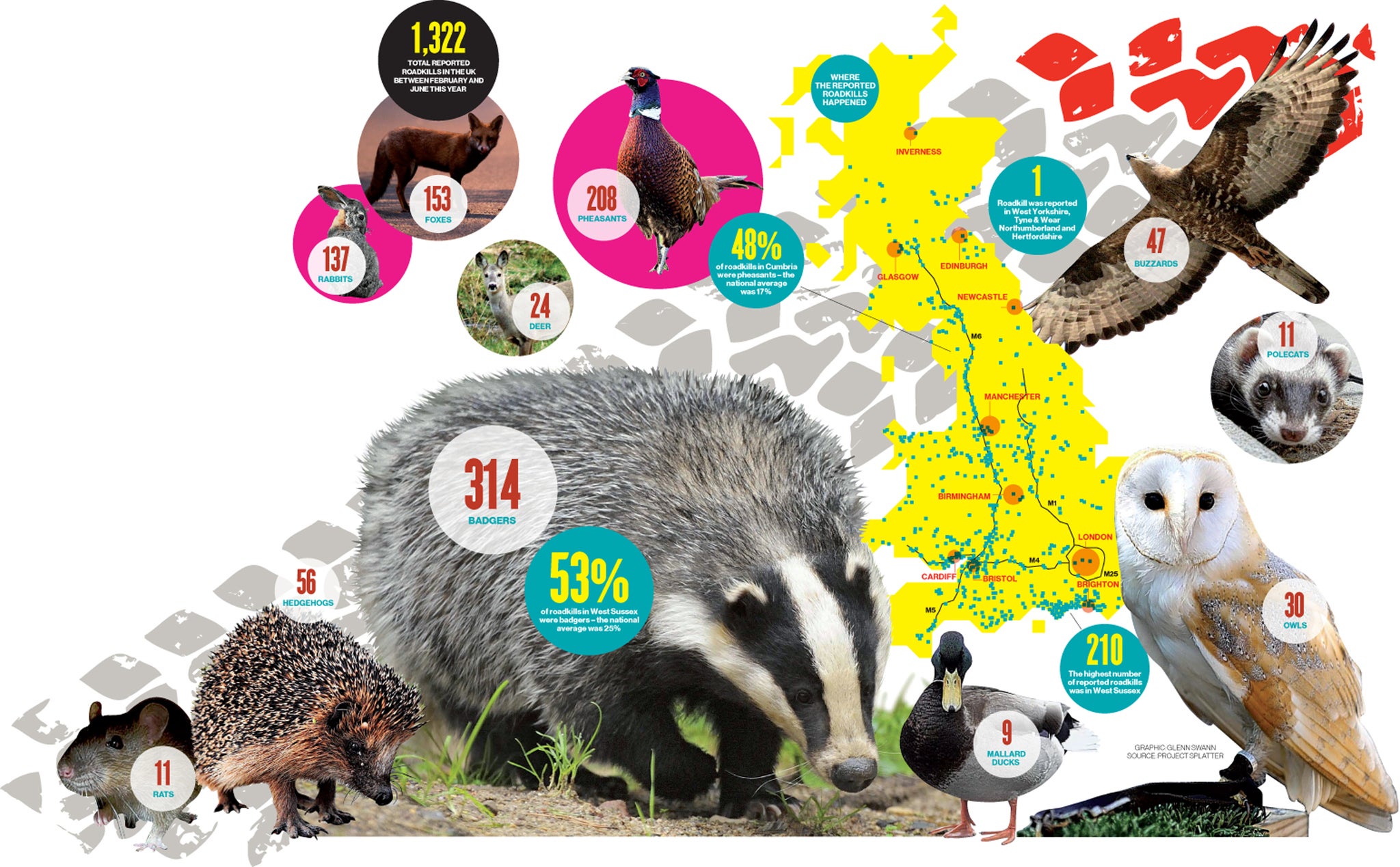Roadkill nation: There’s already a badger cull happening... on Britain's highways
The first survey of animals killed on British roads reveals that badgers are the biggest casualties, followed by pheasants, foxes, rabbits and pigeons

Your support helps us to tell the story
From reproductive rights to climate change to Big Tech, The Independent is on the ground when the story is developing. Whether it's investigating the financials of Elon Musk's pro-Trump PAC or producing our latest documentary, 'The A Word', which shines a light on the American women fighting for reproductive rights, we know how important it is to parse out the facts from the messaging.
At such a critical moment in US history, we need reporters on the ground. Your donation allows us to keep sending journalists to speak to both sides of the story.
The Independent is trusted by Americans across the entire political spectrum. And unlike many other quality news outlets, we choose not to lock Americans out of our reporting and analysis with paywalls. We believe quality journalism should be available to everyone, paid for by those who can afford it.
Your support makes all the difference.“Badgers have no natural predator, except possibly the motor car,” farming minister David Heath recently declared, as he bemoaned Britain’s rising badger population. Now the nation’s first-ever roadkill survey has confirmed his opinion that fast-moving vehicles are proving effective badger-culling machines.
Click image above to enlarge graphic
Badgers are by far the most run-over animal in Britain, accounting for nearly a quarter of the country’s roadkill, according to the initial findings of Cardiff University’s Project Splatter, seen exclusively by The Independent.
Pheasants are the second biggest casualty, followed by foxes, rabbits and pigeons, while West Sussex has emerged as the UK’s roadkill capital, responsible for nearly a sixth of all recorded animal deaths-by-vehicle, three times the tally of second-placed Avon county.
Mr Heath, whose home county of Somerset came 11th, accounting for 3 per cent of animal deaths, said: “If you live in the west country you can see evidence of overpopulation every day of the week. In my constituency [Somerton and Frome] there is not a single lane where you won’t see a dead badger.”
The initial findings from the project were collected over the five months from the beginning of February to the end of June from members of the public, who reported their sightings of carcasses through Twitter and Facebook.
The results show that the M5 has exacted the highest toll, accounting for more fatalities than other motorways, while another cluster on the south coast also has a high carcass count.
A total of 1,322 dead animals were reported in the five months covered by the first chapter of the project, which aims to address the roadkill issue in a fun way. The aim is to develop a clear picture of Britain’s roadkill hotspots and make recommendations on how to reduce the death toll.
In total, 46 species of bird, mammals and amphibians, including otters, minks and coots, were reported killed. A paramedic reported that her ambulance ploughed into a bat on the A286 south of London on the way to an emergency. Another roadkill reporter told of how her mum ran into a female red deer on the A85 north of Glasgow.
But it is the badger that has generated the most attention. Dr Sarah Perkins, the project’s leader, said: “It is unclear whether badgers are the easiest for our ‘splatter spotters’ to see, are particularly bad at crossing roads, are highly numerous in the UK, or are subject to a more sinister fate.”
Badgers are partly responsible for spreading bovine TB among cattle, which is why Mr Heath was bemoaning the animal’s rising population. The Government is planning a major cull of the animal to help eradicate the disease, which is opposed by animal rights campaigners.
Dr Perkins said many Twitter users alleged that badger roadkill has risen significantly in recent years with many accusing farmers of killing the animals and throwing them on the road to disguise their deaths. However, Dr Perkins stresses that she does not have the data to be able to verify that claim.
Road kill data can be reported to @ProjectSplatter
Join our commenting forum
Join thought-provoking conversations, follow other Independent readers and see their replies
Comments